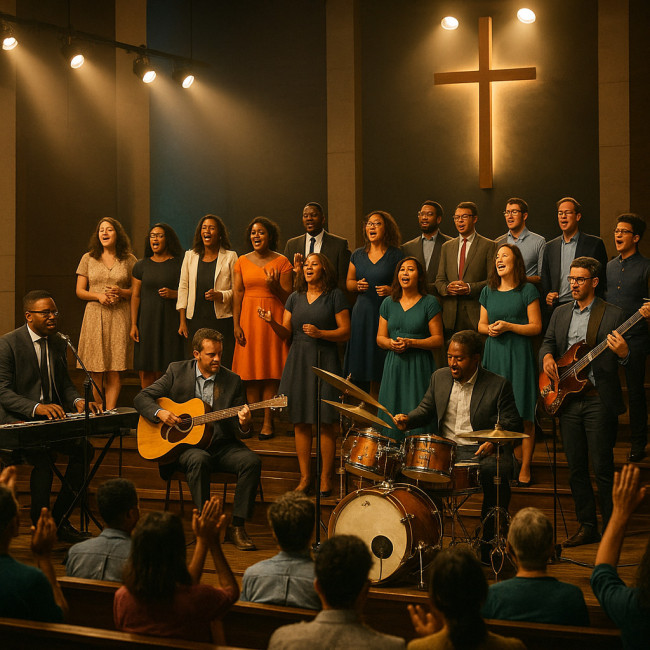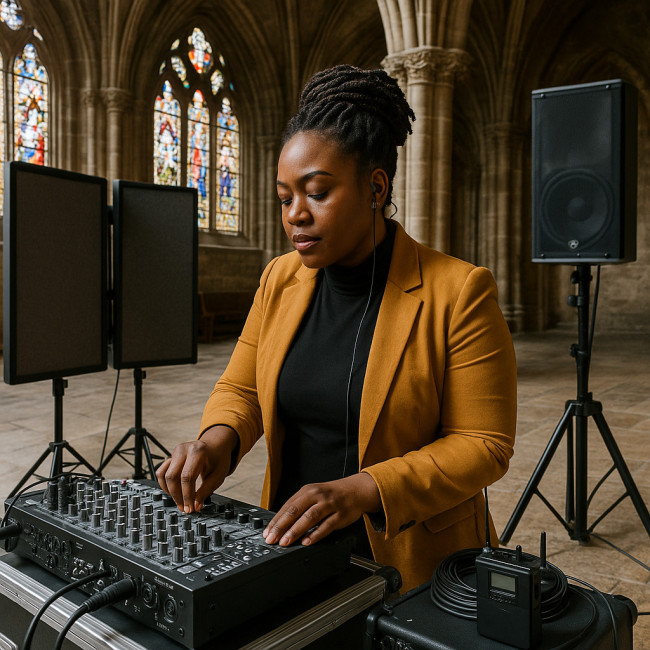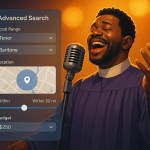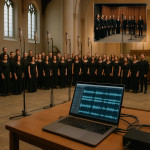Interdenominational gigs: etiquette and contracts for faith-based music events
Planning to sing or play at a faith-based event that gathers several Christian traditions on one stage? This guide equips you with the etiquette rules, contract clauses and practical tips that ensure your performance resonates spiritually and professionally—whatever the denomination mix.
Why interdenominational gigs require special attention

Unlike single-church bookings, interdenominational concerts involve organisers, clergy and audiences who follow different worship customs. A lyric, gesture or tech choice that feels harmless in one setting can jar in another. Clear communication and a robust agreement keep the focus on ministry and music instead of misunderstandings. By anticipating cultural and theological nuances, performers can ensure that the spiritual aim of the event shines through without friction. Thorough preparation transforms potential stumbling blocks into bridges of unity, allowing the gospel message to resonate across denominational lines and fostering a memorable worship atmosphere for everyone involved.
Cultural bridges you must respect
- Liturgical flow: Some traditions expect quiet reflection after a song; others welcome applause. Ask how transitions are handled.
- Language sensitivity: Avoid slang that may confuse non-native speakers or age groups.
- Theological nuances: Words like “saints” or “communion” may carry specific meanings. Confirm any doctrinal red flags during set-list approval.
Etiquette essentials before the first note
1. Pre-event communication with clergy and planners
Schedule a short video call at least three weeks ahead. Bring:
- Your proposed repertoire with lyric sheets.
- Stage plot and technical rider.
- Questions about dress code, platform etiquette and prayer segments.
Tip: Use smart search filters on talent platforms to check how other artists describe similar gigs. You'll extract phrasing that resonates.
2. On-stage behaviour across denominations
Maintain eye contact with the congregation, not just the worship band. When a clergy member steps up for scripture reading, step back from the pulpit to avoid visual dominance. If spontaneous prayer is expected, agree on hand-over cues before showtime.
3. Dress code and lyrical sensitivity
Many organisers provide a modesty guideline. When none exists, err on the conservative side: covered shoulders for women, long trousers for men, and no brand logos. Test lyrics against a list of potentially controversial lines—especially around political or prosperity themes.
Contract clauses that protect ministry and livelihood
Core sections every faith-based performance contract needs
- Purpose statement: Clarify whether the event is worship, fundraising or cultural.
- Compensation: Define honorarium, professional fee, or “love offering” collection method.
- Usage rights: State how recordings, livestreams and photos may be shared.
- Doctrinal clause: Confirm that content aligns with the event's faith statement.
- Cancellation & force majeure: Include acts of God, but specify re-booking within a fixed window.
Honorarium vs professional fee: know the difference
| Aspect | Honorarium | Professional Fee |
|---|---|---|
| Typical language | “Love gift”, “Offering” | “Performance fee”, “Service invoice” |
| Payment timing | After event, often cash or cheque | As per invoice terms (30-day net common) |
| Tax treatment | May be considered a gift; check local laws | Professional income; issue receipt |
| Negotiation range | Limited—set by organiser | Flexible—use rate card |
| Recommended clause | Minimum floor if offering is collected | Late-payment penalty and currency |
Recording and streaming permissions
Interdenominational events often attract wider audiences online. Add a media addendum specifying:
- Platform list (YouTube, Facebook Live, local TV).
- Duration of availability (e.g., 60 days post-event).
- Revenue share if the stream is ticketed.
Technical rider tweaks for faith venues
Historic cathedrals or multipurpose halls rarely match a tour-ready stage. Adapt your rider:
- Acoustics: Bring portable baffling or in-ear monitoring to control echo.
- Power safety: Older buildings may lack grounded outlets. Request certified electrician inspection.
- Projector content: Provide lyric slides early so the media team can adjust font size for vaulted ceilings.
Boosting visibility in faith-based booking circles

Directory platforms accelerate discovery among worship leaders. Update profile elements like credibility badges or accurate metadata fields to surface in searches. Highlight your unique gospel sound and include past interdenominational testimonials. By maintaining an up-to-date portfolio with high-quality videos, verified reviews and clear doctrinal compatibility notes, you reassure booking committees from multiple backgrounds. Consistent engagement—such as posting behind-the-scenes rehearsal clips or writing blog updates on faith-based touring—pushes your profile higher in algorithmic rankings, making it easier for event planners to shortlist you.
Need more stage doors to open? Explore the global gospel singer directory and filter by region to team up with local choirs for blended sets.
Quick checklist before saying “Amen”
- Send a final set-list and rider seven days prior.
- Confirm payment method and tax paperwork.
- Pack conservative attire plus one backup outfit.
- Print lyric sheets for interpreters or hearing-impaired support.
- Arrive 60 minutes early for joint prayer and sound-check.
Mini-quiz: Are you contract-ready?
FAQ
- Can I include secular songs in an interdenominational set?
- Yes, if lyrics align with the event's mission. Always send the secular titles for approval during pre-event meetings.
- Who signs the contract when multiple churches organise the concert?
- Request one legally recognised entity—often the lead church or umbrella NGO—to act as signatory. Append a list of co-organisers for transparency.
- What if the event turns a profit through ticket sales?
- Add a revenue-share clause or a fixed performance fee that reflects the commercial nature. Clarify whether it affects your tax status.











